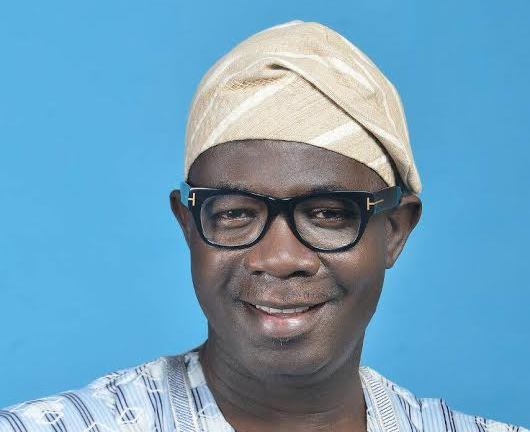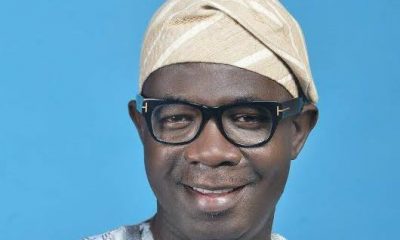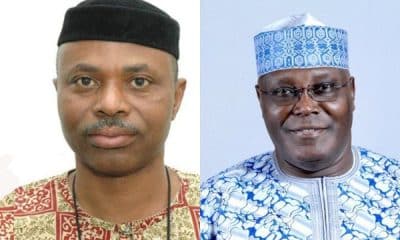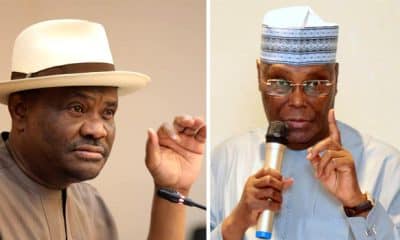Editorial
Ondo 2020: Analysing The ‘legality’ Surrounding Deputy Governor Impeachment Saga

One of the importance of history is the fact that it affords us the opportunity to understand our past, which in turn allows us to understand our present better and to make sound judgement for today’s activities. We need to check history for a sustainable answer devoid of logic and that is why people often say that “history repeats itself”.
Majority believe that it is expedient to value the good part of our history and then learn from the past failures to avoid repeating them in the future. For instance, we may look back on the Civil Rights movement and see why the United States puts so much effort into creating a system where everyone is equal before the law and has equal access to public amenities.
History also allows us to see the reason why the constitution of the Federal Republic of Nigeria was created and started with “We the people”. Without such background, one does not appreciate why the Constitution was important to every citizen. The same history has again mandated us to practice writing for different audiences and today we are looking at the legality surrounding Ondo state deputy governor impeachment saga. It is of utmost believe that at the end of this piece, readers will find out all of the facts for themselves.
During the period of reign of Olusegun Mimiko as the governor of Ondo State, he dumped the Labour Party (LP) that won the election for him to join the People’s Democratic Party (PDP). Following his new move, himself and other loyalists expected his deputy, Ali Olanusi, to do the same but he refused. Mr Olanusi felt it was right for him to remain in LP against the wishes of his boss. Soon, his impeachment processes began and he was impeached. Not pleased with the development, Mr Olanusi proceeded to court and the judicial arm of government maintained that he was impeached in error. It ruled that the impeachment was illegal. But unfortunately, the judgment came after his tenure had expired.
In 2006, the former vice president of Nigeria, Atiku Abubakar dumped the PDP to join the Action Congress (AC) and the court held that the constitution allows for freedom of association and same was obtained in the case of Ladoja in Oyo State where the appellate court held that dumping of a party to another is not gross misconduct.
Barely three months to Ondo State governorship election, many controversies continue to shape the administration of Rotimi Akeredolu following the disagreement between himself and his deputy, Agboola Ajayi who left the ruling All Progressives Congress (APC) for PDP and also got screened as an aspirant of the opposition party in the forthcoming election.
The transition from one party to another has however generated kerfuffle in such a way that the legislative arm has shown interest and they are already shooting shots against Mr Ajayi. While the Ondo State Assembly has begun the impeachment proceedings, the move has been rejected by the state’s chief judge.
Firstly, the lawmakers need 18 of 26 assembly members to sign impeachment request which amount to two-third majority. But with just 14 members, the assembly speaker, Bamidele Oleyelogun, sent an impeachment request to the chief judge, Oluwatoyin Akeredolu, to set up a seven-member panel to investigate the allegations of gross misconduct levelled against Mr Ajayi.
The allegations leveled against the deputy governor included gross misconduct, abuse of office with actions likely to bring down the state government, financial recklessness, abandonment of office, official duty and other assignments and maligning credibility of the legislative arm with false allegations of cash inducement.
Others are defection from the ruling party to the PDP, having sworn-in on the party’s ticket and actions likely to cause breach of peace.
The lawmakers said the setting up of the panel was in line with section 188 (5) of the 1999 constitution as amended but the chief judge said NO. For her, the two-third majority as required by the 1999 constitution for setting up such a probe panel was not formed in the assembly.
It is important to note that the petition by the APC to the lawmakers has its own flaws because Section 40 of the Constitution of the Federal Republic of Nigeria 1999 provides as follows: “Every person shall be entitled to assembly freely and associate with other persons, and in particular he may form or belong to any political party, trade union or any association for the protection of his interests.”
The constitution has given Mr Ajayi the legal backing to be part or against any political party. So, acknowledging that amounts to illegality and you don’t tackle an acclaimed illegality with another form of illegality which was what prompted late Chief Gani Fawehinmi to say that “it is illegal to try to be legal in a state of illegality”.
Since the country is built on constitution, it is very vital an attribute of democracy to take charge and in this case, what is most obtainable is rule of law and must be strictly adhered to most especially when Mr Ajayi maintained that he has not been served an impeachment notice. But if truly served, has he been allowed to respond within the space of time stipulated in the constitution?
If the proper steps were to be taken, the deputy governor has 14 days of the receipt of the notice to respond to allegations raised. It is thereafter that the assembly can send a request to the judiciary and all of these must be done by the quorum of the house in order to avoid using wrong means to correct alleged wrong and also to avoid anarchy.
The law provides that after the response of the fellow whom impeachment notice is served, the House shall resolve by motion without any debate whether or not the allegations should be investigated and it also required at least two-thirds majority of all members of the House.
Except all these are met, all other actions thereafter as null and void. Eventually when Mr Ajayi later responded and the house will sit on his response, a motion requesting the Chief Judge to appoint a panel of seven persons, who in her opinion. They must be of unquestionable integrity and must not be members of any public service, legislature or political party.
Based on the premises stated above, Mrs Akeredolu was very correct in the face of law to have rejected the request by the lawmakers on the basis that notice was not served on parties to the dispute, the impeachable offences not properly stated and all other constitutional steps were yet to be taken.
By the time all is set before getting to her table, Section 188 of the 1999 Constitution as amended also gives three months to the panel to make their findings known to the house while the deputy governor at the course of this would have a right to defend himself. Except the panel report nailed him for any offense, impeachment cannot be perfected.
Even when the deputy governor is nailed by the judicial panel, at least two-third majority of the members of the House must adopt the judicial resolution before any impeachment pronouncement can be made. If loopholes exist, surely, Mr Ajayi may proceed to court to challenge the processes as outlined in the constitution.
Again, we cross our legs as things unfold in days to come. Shalom!!!












